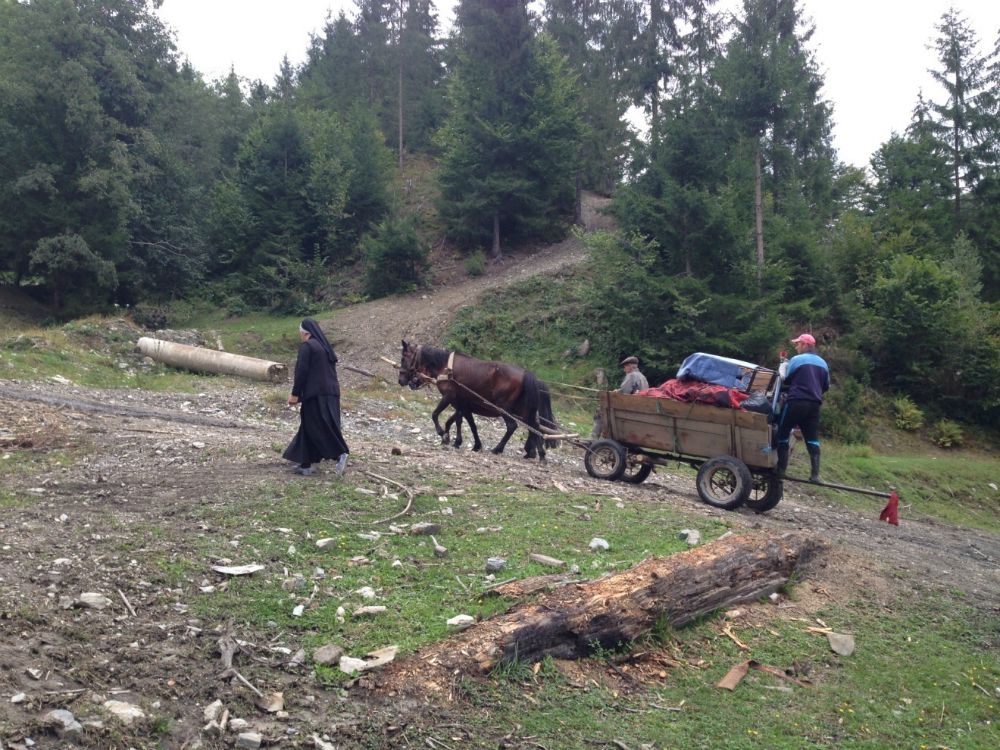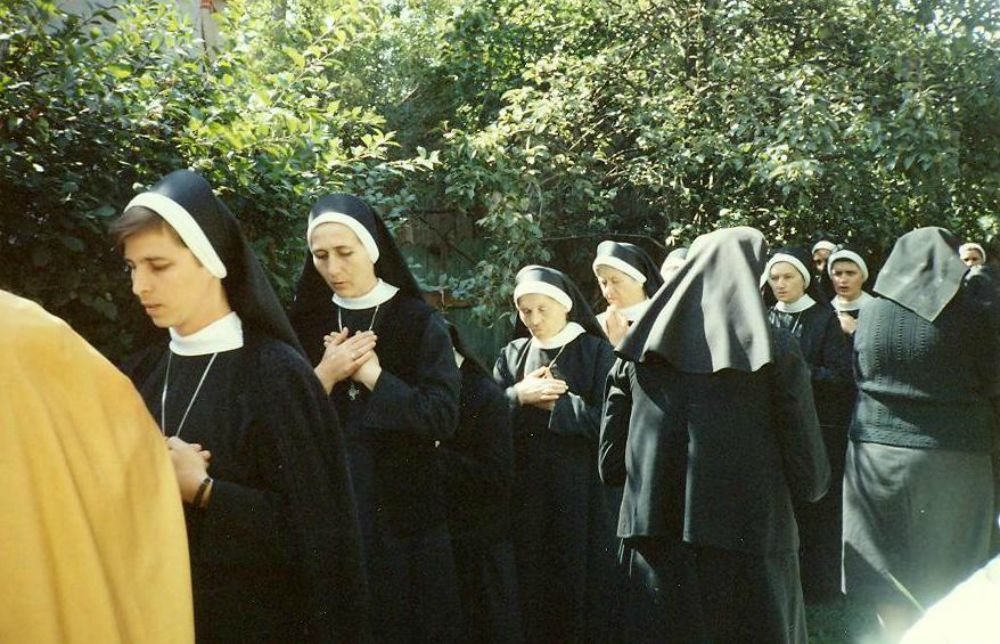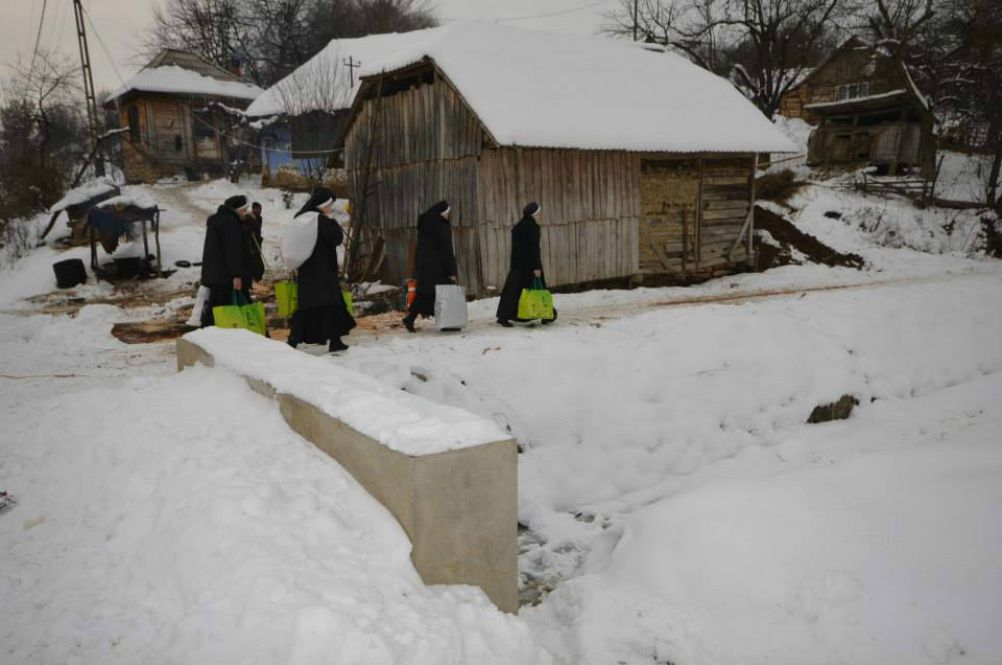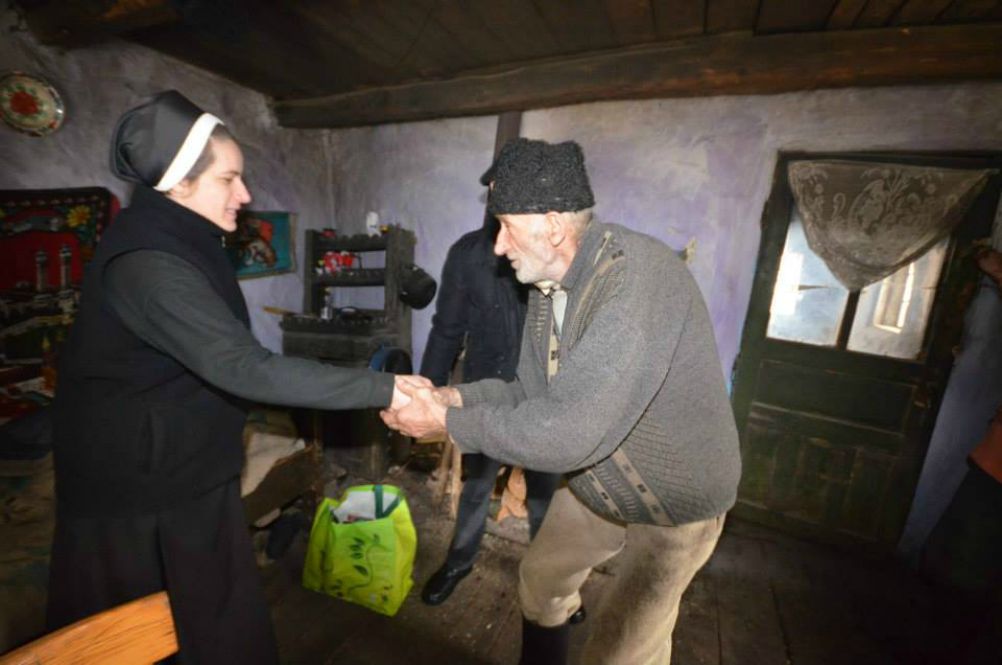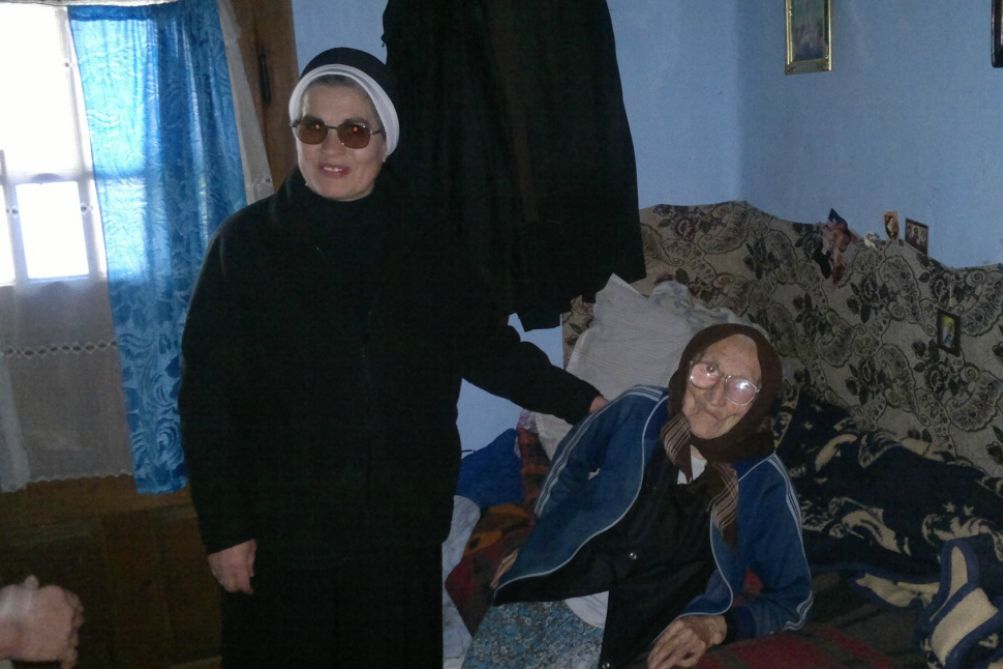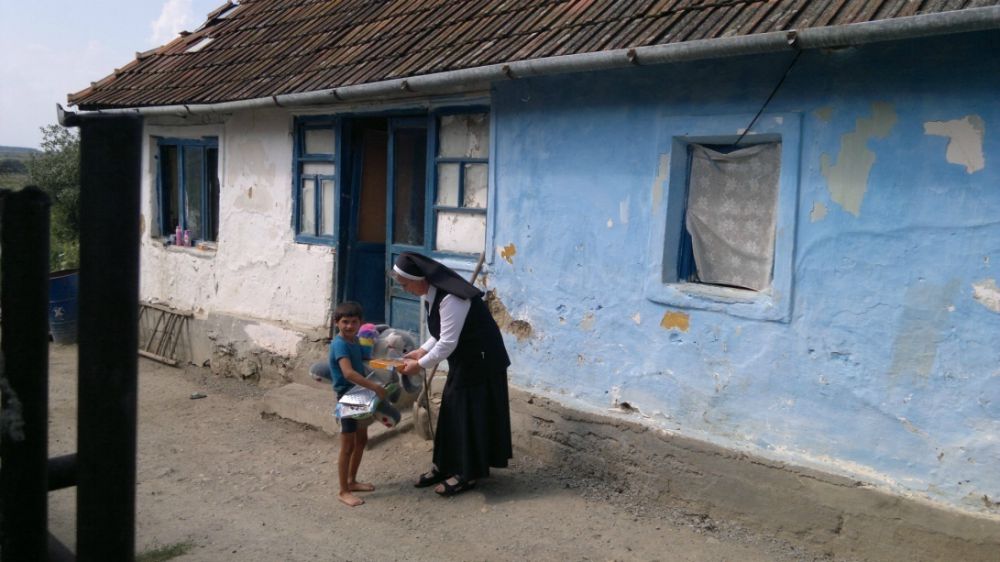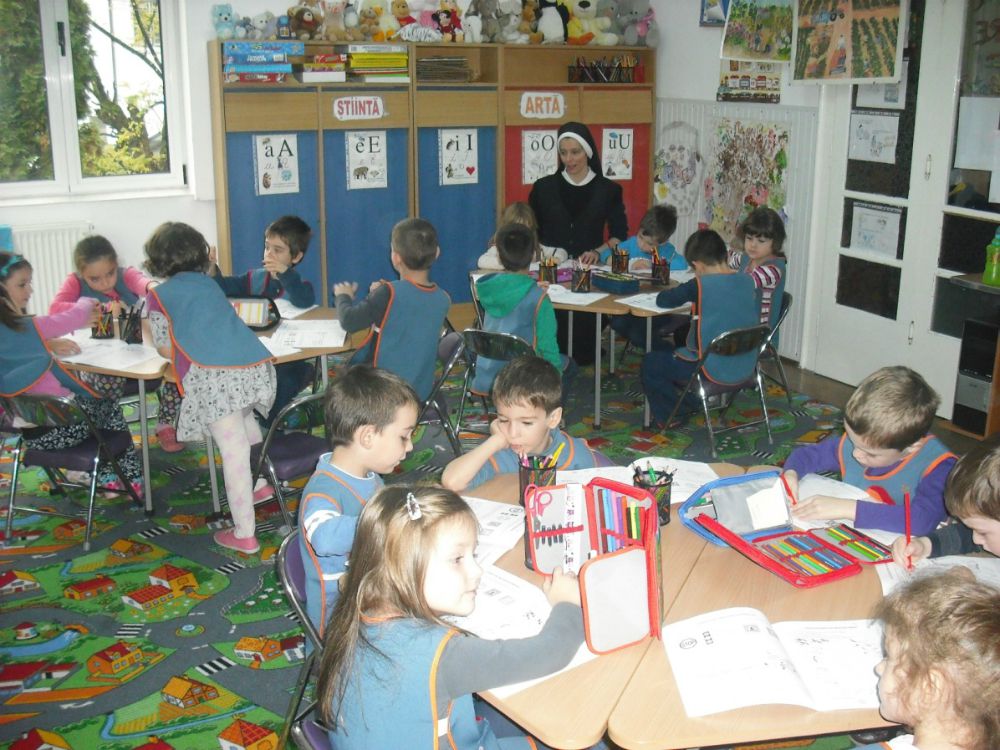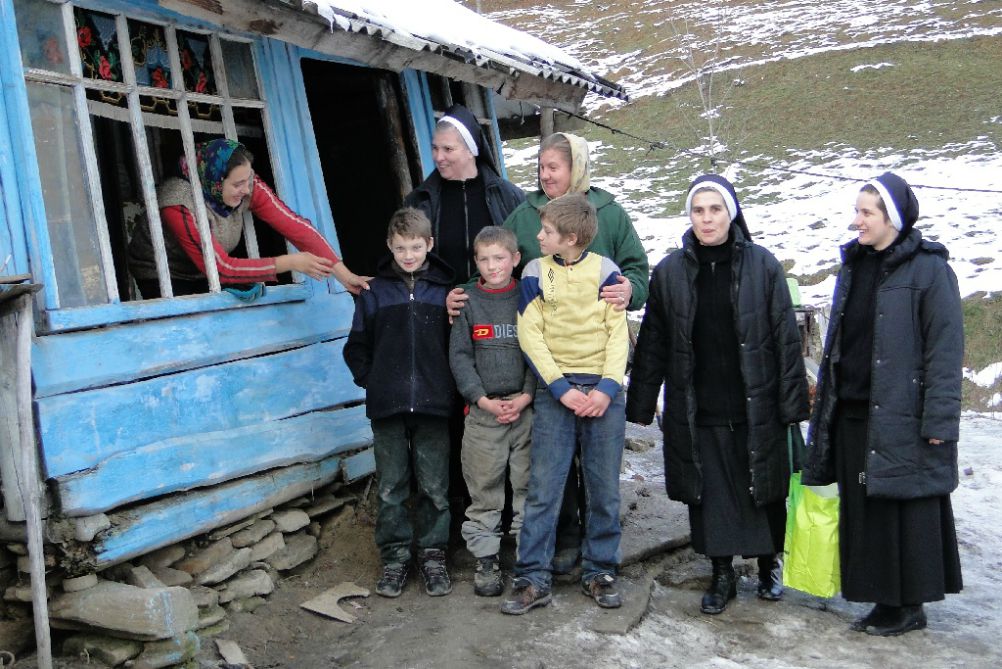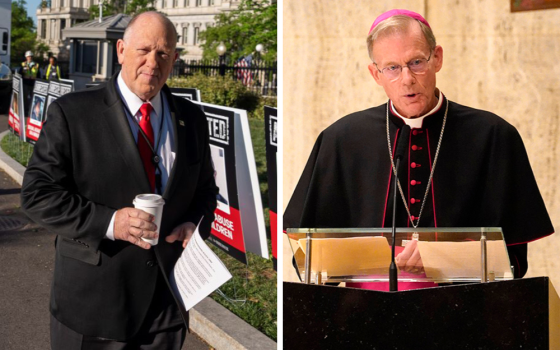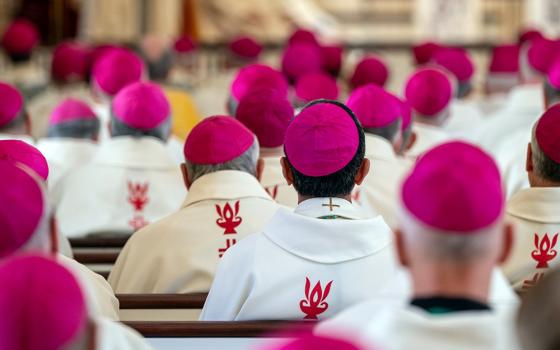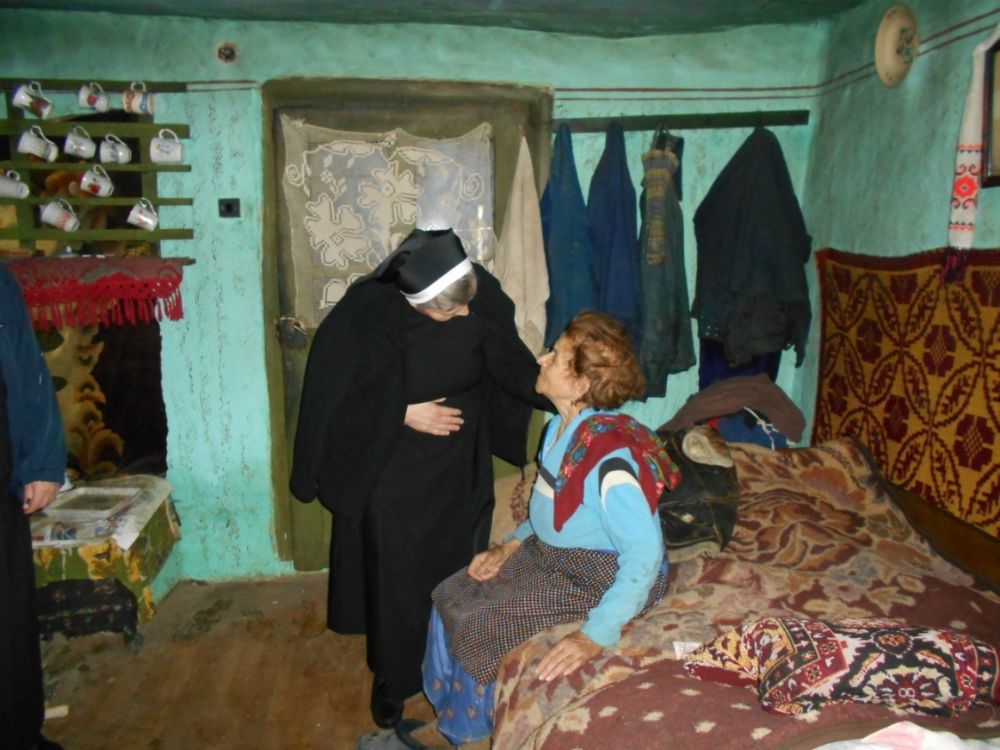
A Basilian sister visits a person living in a remote area of Romania. (Provided photo)
The word of the Lord came to me, saying …
before you were born I set you apart.
I appointed you as a prophet to the nations …
"Alas, Sovereign Lord," I said, "I do not know how to speak; I am too young."
… Then the Lord reached out his hand and touched my mouth and said to me,
"I have put my words in your mouth." (Jeremiah 1, 4-9)
There is always a close connection between calling and beauty ― a spiritual, human and etymological connection. (The Greek adjective "beautiful"— kalos, and the verb "to call / call" — kaleo, have the same root). The call, therefore, appears as beauty. In fact, we are called, we are chosen from eternity; we just have to discover the calling destined for us.
The truth is that — if the joy of meeting, if the surprise of falling in love (with a "That's beautiful!!!" shouted from the heart) does not precede renunciations and sacrifices, if it does not have strong motivation and burning desire, if it results in no concrete service, then it is far from authentic.
For us consecrated persons in love with God, it is clear that the power of his love conquered us. Otherwise we would not have had the courage to respond promptly, with joy and courage, when we "discovered" the call during the communist regime's time of tribulation.
To answer the call at that time required courage and abandonment, a leap into the unknown: when nothing was secure or stable, concrete or promising; when there were no monasteries or apostolates; when media control assured that you had no minimum knowledge about your church or of the existence of religious communities; when there were no spiritual or prayer books; when everything was controlled, censored and manipulated by the communists; when no one had the freedom to think and believe.
The Basilian Sisters of Romania were born into those troubled times of persecution and insecurity, in the darkness of the "catacombs" when the Greek-Catholic Church was outlawed, and we were not allowed to tell anyone (not even parents or family) that we were sisters. We prayed and celebrated the liturgy in nature or behind locked doors, and experienced the pain of not being able to engage in an apostolate for those around us — the children, the poor, the sick, the elderly.
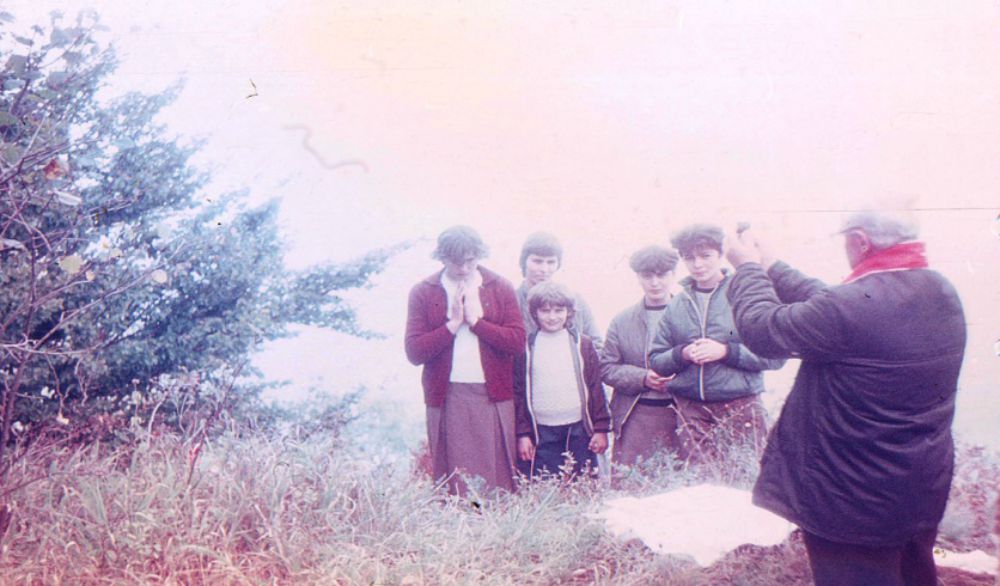
Basilian sisters celebrate liturgy in the mountains in 1980 before religion was legal again. Shown here are Sisters Valentina, Natalia, Flavia and Brigita. During their underground days, the sisters could not wear habits. (Provided photo)
Advertisement
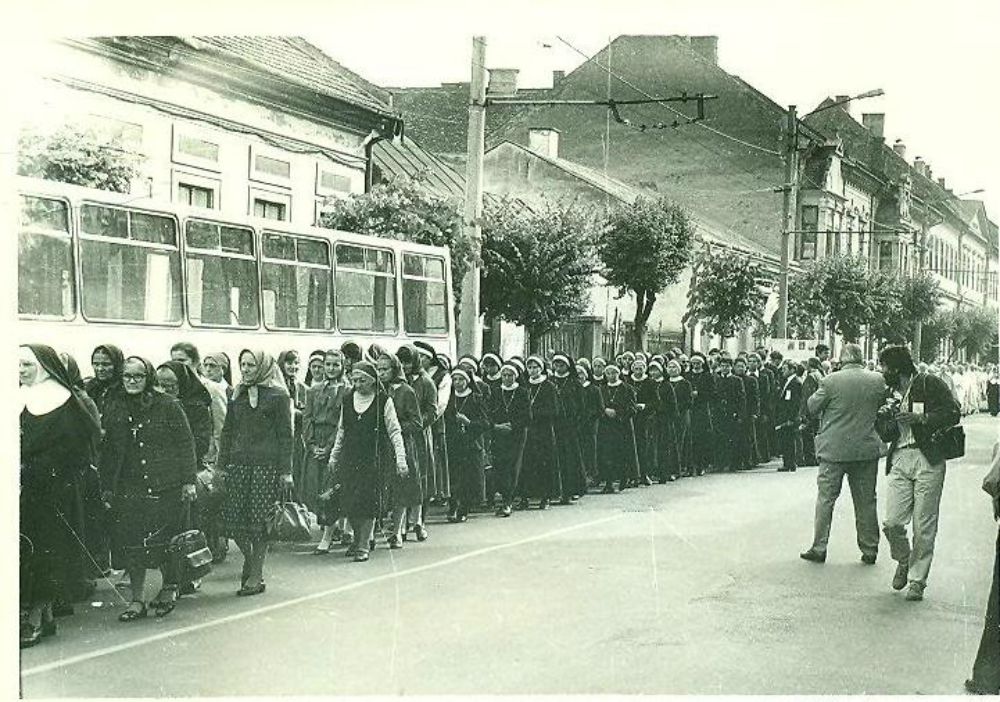
1990: The Basilian sisters' first official appearance in public, on the occasion of the consecration of George Gutiu, the first Bishop of Cluj (Provided photo)
What overcame all those sufferings was the power of the love of Christ, who conquered our hearts even under those conditions. "Wasn't it great?" I thought. That's when I found the courage to say "yes" to his love.
The time in the "catacombs" — when we were most like the poor and suffering Christ — was a rich one, rich in suffering, blessings, faith, and grace. We were also rich in vocations. From 1970 to 1989 ("the freedom"), 60 sisters entered the community, because, "When I am weak then I am strong …" (2 Corinthians 12:10).
The time lived under communism made us stronger, more secure in our vocation, more courageous and more determined to follow him. But following the hard period of communism and the "coming to the light" in 1989, we were disoriented, looking at how much needed to be done for those around us; we didn't know what or where to start, what to do, how and where to serve.
There followed years of study, community building and construction of our monasteries. We started a kindergarten and other projects for the human, moral and spiritual formation of children and young people, working with the poor, the sick and the elderly, in various sectors of society where we lived.
In every ministry we always discovered in our people the deep need to be listened to, understood, supported and encouraged. There is a deep hunger for love, truth and justice. Working with children we find the joy of their innocence, but also their desire to explore new areas of activity or creativity. The sisters are the "mothers" of the children for as long as they are in our care. A strong relationship of love and mutual trust is created, leading to success in education for them, and for us immense joy.
The forgotten, marginalized poor are the most vulnerable and excluded from our society — where moral values are trampled on, where respect and love are precarious. We visit these people living in poverty in the outskirts of the big cities or in mountain villages. They rarely have visitors to help them or to remind them that they are not forgotten by God.
We are always surprised that not only do we "give" them something, but they give us more. Despite their poverty, often lacking the necessities of life, they exude an indescribable joy. They strengthen us more than we strengthen them, and each time we visit them, we receive a lesson in life. They never complain that they are poor, that it is difficult for them, but accept their reality. Rarely, very rarely, do we see them sad and discouraged.
There are families with many children living in remote villages with no accessible roads, schools, pharmacies, hospitals, shops: Often their only transportation is horses, and children walk 10 kilometers to a school in the neighboring village.
People who have never received a gift are amazed at our material help, but most of all you can read on their face the joy of meeting others, the joy in discovering that they are not alone on this Earth. Some have no children, or are forgotten by their children who left the villages for a better life in the city.
And there is a poverty of love, trust, hope and loneliness; there are people suffering from diseases, from marginalization and abandonment, from abuse of all types. We face this kind of poverty with love, acceptance, comfort and counsel, but most of all with listening. Their sadness and pain strengthens our commitment.
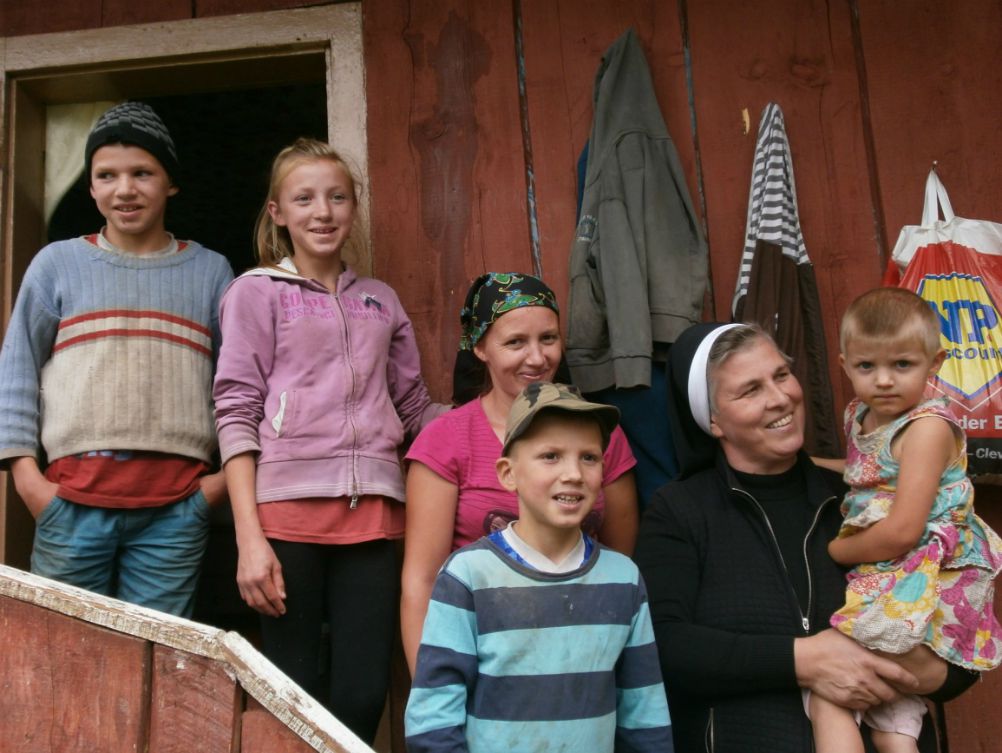
"There is no greater joy than to make someone a little happier." A Basilian sister visits a family in rural Romania. (Provided photo)
There is no greater joy than to make someone a little happier, to see them rising with their last ounce of strength from the abyss of their powerlessness, to see what courage it takes to face the problems of their life.
These are the joys of our apostolate and ministry. Christ our model has given us this gift of ministry and love, and we have as inspiration the Seven Bishop Martyrs of our church, recently beatified at Blaj by Pope Francis. They paid for their faith with their lives, in communist prisons.
Living our calling in the communist "catacombs" strengthened our conviction to fulfill our vocation with devotion, love and concrete involvement, to live it more and more fruitfully. The beauty of our call is the embracing love of Christ and the beauty of the wonderful people we serve. We invite you to visit us and join us in this wonderful experience together!
[Valentina Hadarau is a Sister of Saint Basil the Great in Romania. After attending a professional school in Cluj, she worked in a factory for 10 years. She entered the novitiate in 1980 and made final vows in 1987, after which she worked as a catechist in the underground. Two years later, after "the freedom," she went to study in Rome, but was soon appointed novice mistress. In 1995, the community had their first general chapter, after which she began serving in community leadership as general councillor, provincial vicar, and provincial. She now ministers as house superior for a community in Lugoj, and teaches religion in elementary and high school.]
History of Basilian sisters in Romania
Mother Ana Fekete, a Daughter of Charity in Satu Mare, Romania, left that congregation in 1948 to begin a community for young women in Romania who did not know the Hungarian language spoken by the Daughters of Charity. Basilian Fr. Leon Man, who was superior of a nearby monastery, helped in the foundation of the Basilian Sisters in 1946. Rome approved the congregation in 1948, the same year the country declared the church "illegal." Both Man and Fekete were arrested and sentenced to prison for their attempt to found a congregation of Greek-Catholic nuns.
Years later, in 1970 — the same year Fekete died — Basilian Fr. Sabin Dăncuş re-founded the community in Cluj, Romania. Shortly afterward, he learned that another community of four Basilian sisters existed in Gherla, Romania. The sisters had been working elsewhere when Fekete was arrested. The two groups merged.
Even though the Greek-Catholic Church still operated underground, 56 sisters entered the novitiate, 44 made temporary vows and 18 professed perpetual vows between 1972 and 1989.
Source: Basilian sisters of Cluj

